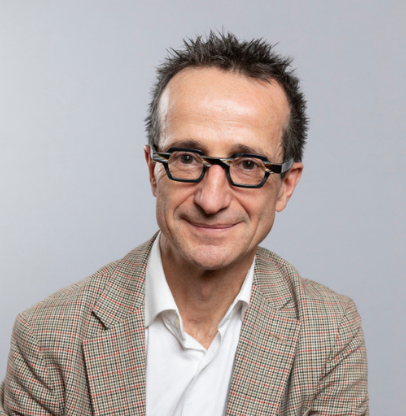Marc Bardou: For More Equality in Cervical Cancer Screening
Marc Bardou wants to significantly improve access to cervical cancer screening for the most vulnerable women. To do this, he has set up Cbig-Screen, an ambitious public health research project federating a number of European teams. This project has received support from the European Union, along with major funding from the Health, Demographic Change and Wellbeing Societal Challenge component of the Horizon 2020 program.

Marc Bardou* is an asset to vulnerable populations. Hepatologist and Professor of Medical Pharmacology at Dijon University Hospital, he leads several public health research projects aimed at improving their access to care. His aim is not so much to innovate but rather to optimize and evaluate the existing systems, building on what works in order to get disadvantaged people back on the path to care. Cbig-Screen is his most ambitious project. Launched on March 26 of this year, its aim is to increase cervical cancer screening coverage among vulnerable women in Europe. « There is nothing more unequal than cervical cancer, he says. Vulnerable populations not only cumulate factors that put them at a 30% higher risk of developing it, but they also tend to slip through the net when it comes to screening. » The objective of Cbig-Screen is therefore to halve the number of untested women in precarious situations: for example, women who are disadvantaged or vulnerable, especially migrants, women living with HIV, or sex workers.
To tackle the problem, Bardou began by creating a network of expertise by surrounding himself with numerous European partners: « I scoured the scientific literature and whenever a study had added value in relation to my project, I reached out to the team inviting it to participate, » he says. All in all, he convinced 14 partners to join the adventure. « We submitted our project to the European Commission, but it took three attempts to be successful! These calls for projects require flawless applications that leave no room for doubt when it comes to the methodology or obtaining results and require the expected benefits to be well-quantified at the European Union level, » explains the researcher.
For and also with the women concerned
In concrete terms, the consortium will collect, analyze, and share knowledge on the shortcomings and possible ways to improve the existing systems, with the aim of building a European policy that will take into account the particularities of those women and the regions in which they live. « This project combines theoretical and practical aspects. We will organize meetings with the various stakeholders – particularly with representatives of the women concerned – to assess the acceptability of the proposed initiatives and their relationship to care, » emphasizes Bardou. The British team will perform modelling to predict the impact of different incentive policies which will then be evaluated on the ground in three countries (Estonia, Romania, and Portugal). This will enable us to confirm or refute the relevance of the models, and to readjust them if necessary. For example, the mailing of an HPV test will not have the same impact everywhere, depending on the relationship with this form of distribution, which may be perceived as a valuable medium by some or a mere marketing tool by others, and on the quality of organization of the postal system. We will also conduct a health-economic evaluation of the measures selected. »
« In the course of my career I have seen many vulnerable patients, suffering from viral hepatitis, confronted with alcohol consumption disorders... I have also met Esther Duflo, winner of the Nobel Prize in Economic Sciences for her work on reducing the negative impacts of poverty, for example on education and health. All of this encouraged me to develop more interventional public health research studies for the most vulnerable, » he explains. Bardou defended his medical dissertation in 1996 and his science dissertation in 2000. He joined Inserm in 2008 by creating a multidisciplinary Clinical Investigation Center (CIC) at Dijon University Hospital. Then, in 2012, he took over the coordination of the national obstetrics-gynecology network of the Inserm CICs, a responsibility particularly legitimized by his work on the threat of preterm birth. He is now continuing his research within the same CIC, whilst being a joint leader of the inter-ministerial research unit at the French Ministry of Solidarity and Health. There he contributes his expertise as a researcher to help coordinate preventive, therapeutic and epidemiological research within the framework of the COVID-19 pandemic.
Note:
Clinical Investigation Center 1432, Inserm/ Université de Bourgogne/Dijon University Hospital
